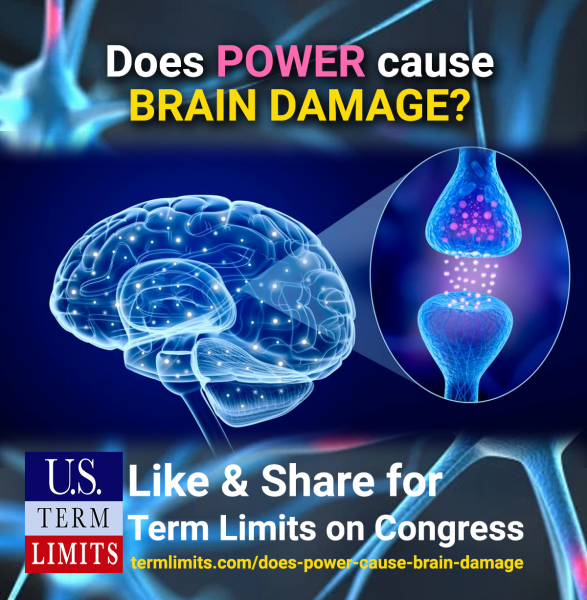 Several times on our No Uncertain Terms podcast, Nick has referred to a study that suggests that subjects under the influence of power act as if they have suffered a traumatic brain injury. Naturally, this sounds immediately plausible to anyone who as attentive to the U.S. Congress as we are. But seriously, brain damage?
Several times on our No Uncertain Terms podcast, Nick has referred to a study that suggests that subjects under the influence of power act as if they have suffered a traumatic brain injury. Naturally, this sounds immediately plausible to anyone who as attentive to the U.S. Congress as we are. But seriously, brain damage?
Maybe so. If you were to ask Dacher Keltner, a psychology professor at the University of California Berkeley, he’d say yes. In studies spanning two decades of lab and field experiments, Keltner reports that powerful people tend to become more impulsive, less risk aware, and – most importantly – less adept at seeing things from others point of view. Once one gains power, the very abilities that got them into that exalted position starts to erode. He calls this the “Power Paradox”.
His work was recently summarized in an article in the July/August 2017 issue of The Atlantic by Jerry Useem entitled “Power Causes Brain Damage.” See, it isn’t just us!
Sukhvinder Obhi, a neuroscientist at McMaster University in Ontario, more or less corroborates Keltner’s findings from a different angle. While Keltner was examining the behaviors of the powerful, Obhi actually examined their brains. Using a transcranial-magnetic-stimulation machine, he finds that power appears to corrupt a specific neural process called ‘mirroring,’ which is thought to be the cornerstone of empathy.
Princeton psychology professor Susan Fiske argues that power lessens the need for empathy or reading other people, since powers offer control over things that you would otherwise have to persuade others to provide.
In his Atlantic article, Useem describes some interesting evidence of this phenomenon:
“A 2006 study asked participants to draw the letter “E” on their forehead for others to view—a task that requires seeing yourself from an observer’s vantage point. Those feeling powerful were three times more likely to draw the E the right way to themselves—and backwards to everyone else (which calls to mind George W. Bush, who memorably held up the American flag backwards at the 2008 Olympics). Other experiments have shown that powerful people do worse at identifying what someone in a picture is feeling, or guessing how a colleague might interpret a remark.
“The fact that people tend to mimic the expressions and body language of their superiors can aggravate this problem: Subordinates provide few reliable cues to the powerful. But more important, Keltner says, is the fact that the powerful stop mimicking others. Laughing when others laugh or tensing when others tense does more than ingratiate. It helps trigger the same feelings those others are experiencing and provides a window into where they are coming from. Powerful people ‘stop simulating the experience of others,’ Keltner says, which leads to what he calls an ‘empathy deficit.’
“Mirroring is a subtler kind of mimicry that goes on entirely within our heads, and without our awareness. When we watch someone perform an action, the part of the brain we would use to do that same thing lights up in sympathetic response. It might be best understood as vicarious experience. It’s what Obhi and his team were trying to activate when they had their subjects watch a video of someone’s hand squeezing a rubber ball. For nonpowerful participants, mirroring worked fine: The neural pathways they would use to squeeze the ball themselves fired strongly. But the powerful group’s? Less so.”
We like Andrew Heaton’s take on this research on the Reason.com blog: “Power-induced brain damage raises troubling questions about all those suits and technocrats who slink into Washington. What if you need a fully-functional orbitofrontal lobe to make decisions that affect millions? It certainly sounds like an important brain glob. Maybe the heady tonic of power makes leaders less wary of unforeseen consequences, or overly confident of their capacity to solve everything? The antidote to all this spiraling brain damage might be to put America on a power diet.”
Term limits, anyone?
For the full article, check out TheAtlantic.com.